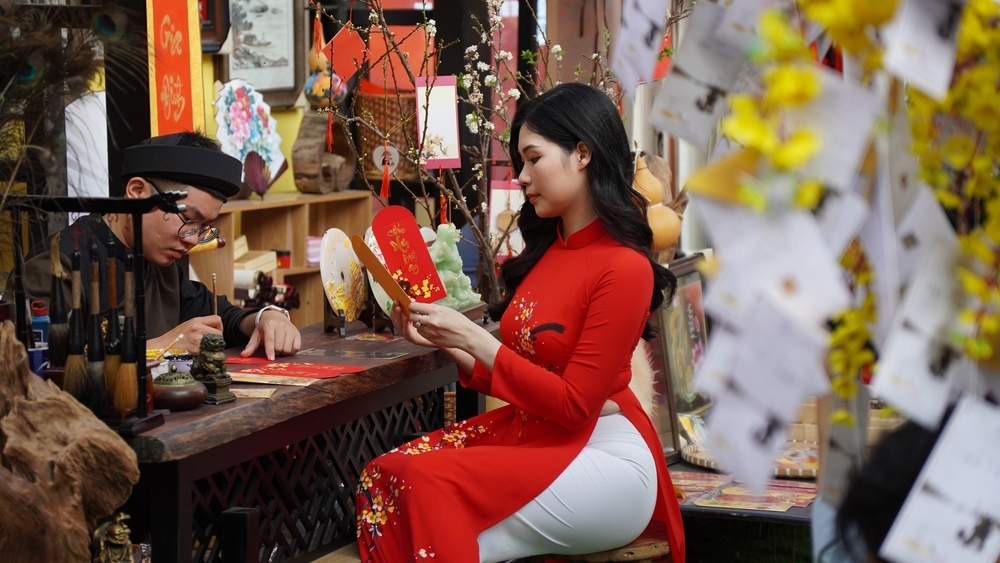As we move closer to the halfway mark of the year, let’s delve into the captivating realm of Vietnamese superstitions. These age-old beliefs, deeply embedded in the fabric of Vietnamese culture, offer a unique insight into the customs and traditions that have guided generations.
Vietnamese superstitions find their origins in historical events, spiritual ideologies, and cultural practices, each contributing to their rich tapestry. Passed down from ancestors, these beliefs continue to influence and shape the lives of the Vietnamese people, even in the modern era.
Understanding these superstitions’ origins and cultural connotations provides valuable insights into the deep-rooted desire for harmony, good fortune, and a connection to the mystical realm. By exploring these beliefs, we gain a deeper appreciation for cultural significance and role as we navigate the rest of the year.
Numerology: Numbers as Omens

In Vietnamese culture, numbers carry immense importance, influencing various aspects of life. One notable example is the significance attached to the number 4. In Vietnamese, the pronunciation of “4” resembles the word for “death,” making it highly unlucky. This belief has led to the omission of the fourth floor in elevators and buildings, with “3A” often used instead, as well as 13 and 14, replaced with 12A and 12B. This avoidance of the number 4 extends to addresses, phone numbers, and other significant matters.
Conversely, the number 8, which sounds similar to the word for “prosperity,” is viewed as highly auspicious, symbolizing good fortune. This cultural belief illustrates the blending of Chinese influences and the profound impact of superstitions on Vietnamese customs.
Spirit Worship: Nurturing the Spiritual Realm
Vietnamese people embrace the belief in benevolent and malevolent spirits and their influence on daily life. Ancestral spirits, kitchen gods, and other supernatural beings are revered, and rituals and offerings are performed to honor them. These practices originate from ancient indigenous beliefs and have integrated with Buddhism, Taoism, and Confucianism over time.
Maintaining a harmonious relationship with spirits is how they seek blessings, protection, and guidance from the spiritual realm.
Lunar New Year Traditions: Welcoming Prosperity

The Lunar New Year, known as Tet in Vietnam, holds immense significance as the country's most important holiday. It serves as a joyous occasion that brings families together in celebration while observing specific customs and superstitions. During Tet, it is customary to refrain from cleaning the house in the initial days to avoid inadvertently sweeping away good luck. This practice reflects the belief in preserving positive energy within the home and ensuring a propitious start to the year.
Additionally, using sharp objects is discouraged during Tet as they are symbolically associated with cutting off good fortune. Vietnamese people are mindful of handling knives, scissors, and other sharp tools during this festive period.
These customs and superstitions associated with Tet underscore their deep-rooted aspiration for a harmonious and prosperous beginning to the Lunar New Year. Passed down through generations, these traditions foster unity, hope, and anticipation for a year filled with prosperity and good fortune. Tet is a time when Vietnamese families come together to honor their heritage, strengthen familial bonds, and embrace the belief in inviting positive energies for the year ahead.
Taboos: Avoiding Misfortune
Vietnamese culture is intertwined with various taboos that dictate specific actions or objects to avoid. For instance, sweeping the floor at night is believed to sweep away good fortune, making it a highly discouraged practice. Similarly, pointing at the moon or whistling at night is considered unlucky, as it is believed to attract evil spirits.
These taboos stem from a desire to preserve harmony, ward off negative energy, and ensure good luck. By adhering to these beliefs, Vietnamese people seek to maintain balance in their lives.
Feng Shui: Harmony and Balance

Feng shui, an ancient Chinese practice, has gained immense popularity in Vietnam. It focuses on arranging objects and structures in harmony with the natural environment to invite positive energy and good fortune.
In Vietnamese culture, feng shui principles are applied to homes, buildings, and even cities. The alignment of furniture, the positioning of doorways, and the selection of colors and materials are carefully considered to create an environment that promotes well-being and prosperity.
Dream Interpretation: Insights from the Subconscious
Vietnamese culture places great importance on dreams and their interpretation. Dreams are believed to convey messages from the spiritual realm or the subconscious mind. For example, dreaming of a snake may be seen as a sign of upcoming challenges, while dreaming of a wedding may indicate good fortune.
Vietnamese pay attention to their dreams, seeking guidance and insights into their lives. This belief highlights their deep connection to the metaphysical realm and their desire for self-reflection and understanding.
